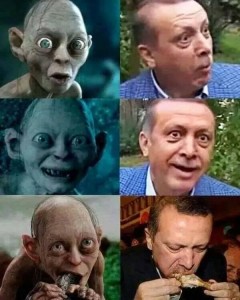Recently before class started, Professor Schacht played a song called “Strange Fruit” written by Abel Meeropol. The song was originally written as a poem, published in 1937, but because of its strikingly grim yet powerful lyrics, artists such as Billie Holiday and Nina Simone have taken the poem to the performance stage.
Professor Schacht played Nina Simone’s rendition of “Strange Fruit” and by hearing just the first eight bars of the piece, I was reminded of the song “Blood On the Leaves” by the renowned modern day progressive artist, Kanye West. “Blood On the Leaves” actually uses the first eight bars of “Strange Fruit” as a sample for the song and to establish a theme that is prevalent in Kanye’s most recent album, Yeezus, which includes “Blood On the Leaves”. It was appropriate for Kanye to use “Strange Fruit” as a sample for “Blood On the Leaves” because of the correlating messages that both songs provide. However, it is interesting to see the difference in time period and context that each song specifically addresses.
Nina Simone’s rendition of “Strange Fruit” is concerned with the era of slavery, specifically the lynching of slaves. The song utilizes vivid language such as, “Black bodies swinging in the southern breeze, Strange fruit hanging from the poplar trees” to expose the gruesome nature of lynching as well as the oppressive history of slavery.
Kanye West was obviously influenced by this theme of oppression in “Strange Fruit” causing him to create “Blood On the Leaves” and “New Slaves”, another song on Yeezus, that offer a twist on this idea of oppression. Rather than attacking the original era of slavery, Kanye attacks today’s highly consumerist society and claims that this is the generation of the “New Slaves.” By “New Slaves”, Kanye means that today’s generation are blinded, or “enslaved” by corporate branding and the media. He portrays this idea of the “new slave” and modern day racism in his song “New Slaves” which ultimately illustrates how this generation is being financially and mentally “lynched” by big corporations and even government agencies. Take the following paraphrased lyrics as an example:
- “Doing [fashion] you would have thought I had help, but [corporations] wasn’t satisfied unless I picked the cotton myself”
- (Although Kanye started as a musical artist, since his debut, he has branched out into more fields of visual art, especially fashion. However, big fashion labels and designers disliked Kanye’s attempt to venture out into the fashion world because they perceived Kanye as purely a musical artist. Therefore, when Kanye states that he must “pick the cotton himself” he means that if he wants to do fashion, he must financially do it all on his own.)
- “You see it’s broke [man] racism, that’s that ‘Don’t touch anything in the store. And it’s rich [man] racism, that’s that ‘Come in please buy more.’”
- (This bar shows the disparity between how store owners treat those who have money and those who do not. Society continues to separate people not based on just race and gender, but also class as well.)
- “Meanwhile the DEA teamed up with the CCA, they trying to lock [people] up, they trying to make new slaves. See that’s a privately owned prison, get your piece today. They’re probably all in the Hamptons bragging about what they made.”
- (Kanye is attempting to reveal the true intentions of government agencies such as the DEA and the CCA and how he feels that “the system” is perpetuating racism and corruption.)
As you can see, Kanye talks about an increasingly oppressive and unequal society where rich corporations are all about remaining rich while promoting the idea of “the American Dream,” which Kanye believes to be a façade. Especially in the song “New Slaves”, Kanye takes jabs at corporations and the media for how they oppress and control the minds of easily molded young individuals in society that become mesmerized with materialism as an expression of socioeconomic status. Kanye denounces the financial and mental “enslavement” that is taking place in today’s consumerist society and is adamant about change.
